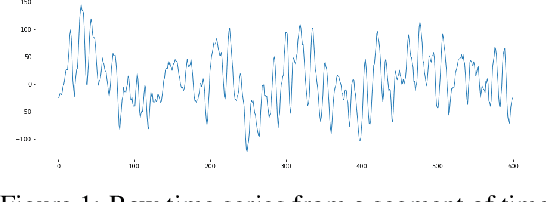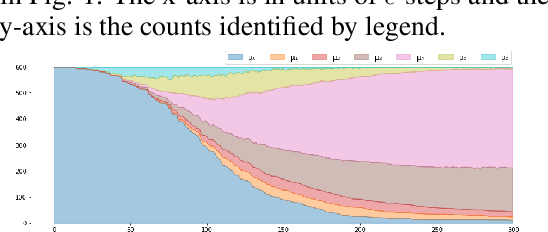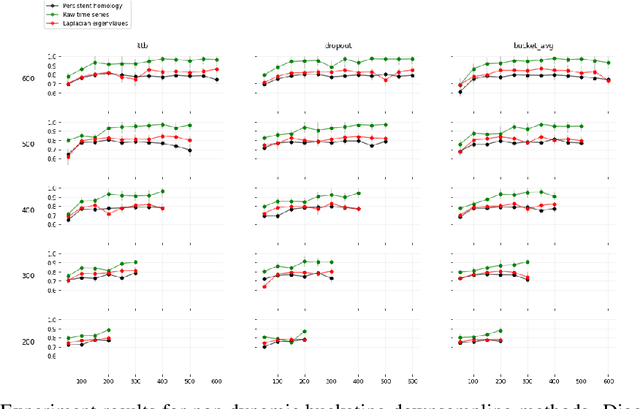Geometric feature performance under downsampling for EEG classification tasks
Paper and Code
Feb 15, 2021



We experimentally investigate a collection of feature engineering pipelines for use with a CNN for classifying eyes-open or eyes-closed from electroencephalogram (EEG) time-series from the Bonn dataset. Using the Takens' embedding--a geometric representation of time-series--we construct simplicial complexes from EEG data. We then compare $\epsilon$-series of Betti-numbers and $\epsilon$-series of graph spectra (a novel construction)--two topological invariants of the latent geometry from these complexes--to raw time series of the EEG to fill in a gap in the literature for benchmarking. These methods, inspired by Topological Data Analysis, are used for feature engineering to capture local geometry of the time-series. Additionally, we test these feature pipelines' robustness to downsampling and data reduction. This paper seeks to establish clearer expectations for both time-series classification via geometric features, and how CNNs for time-series respond to data of degraded resolution.
 Add to Chrome
Add to Chrome Add to Firefox
Add to Firefox Add to Edge
Add to Edge